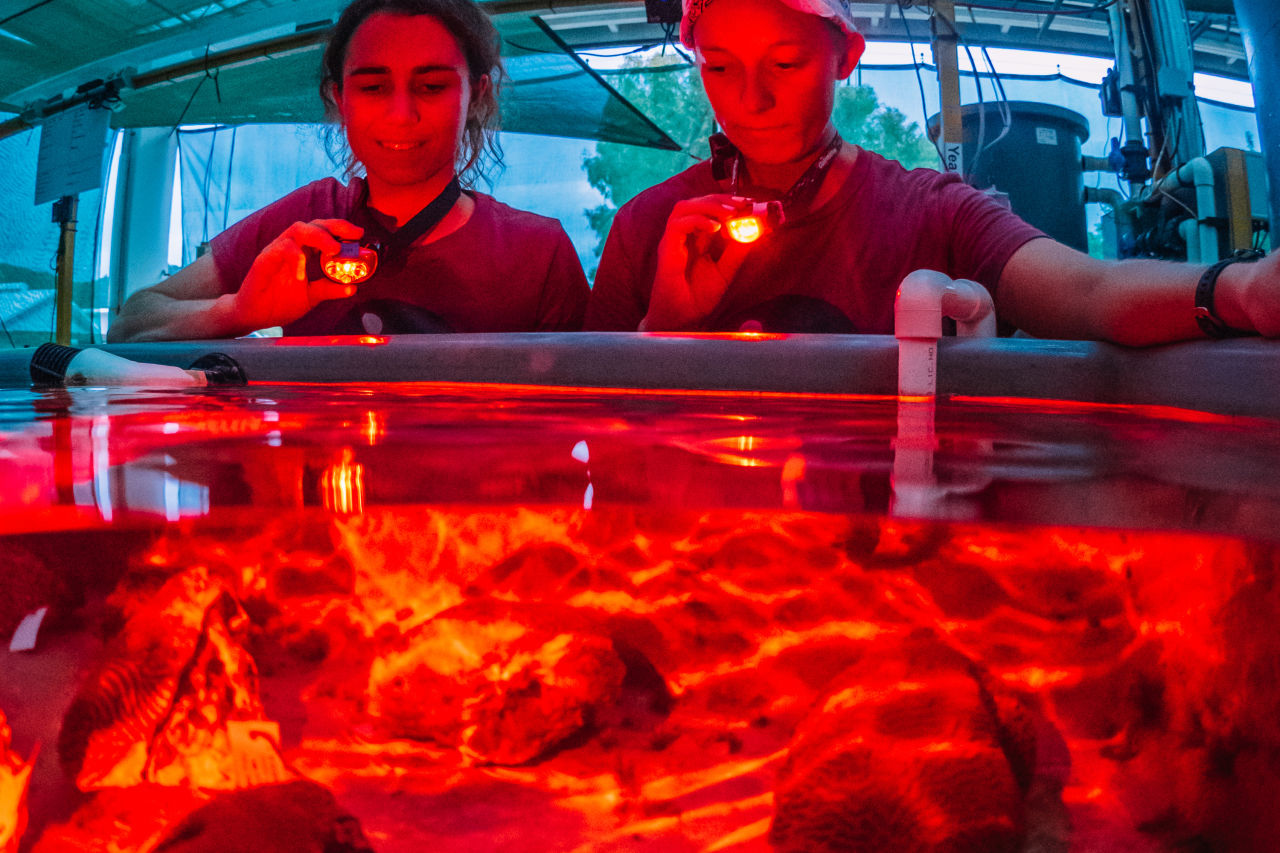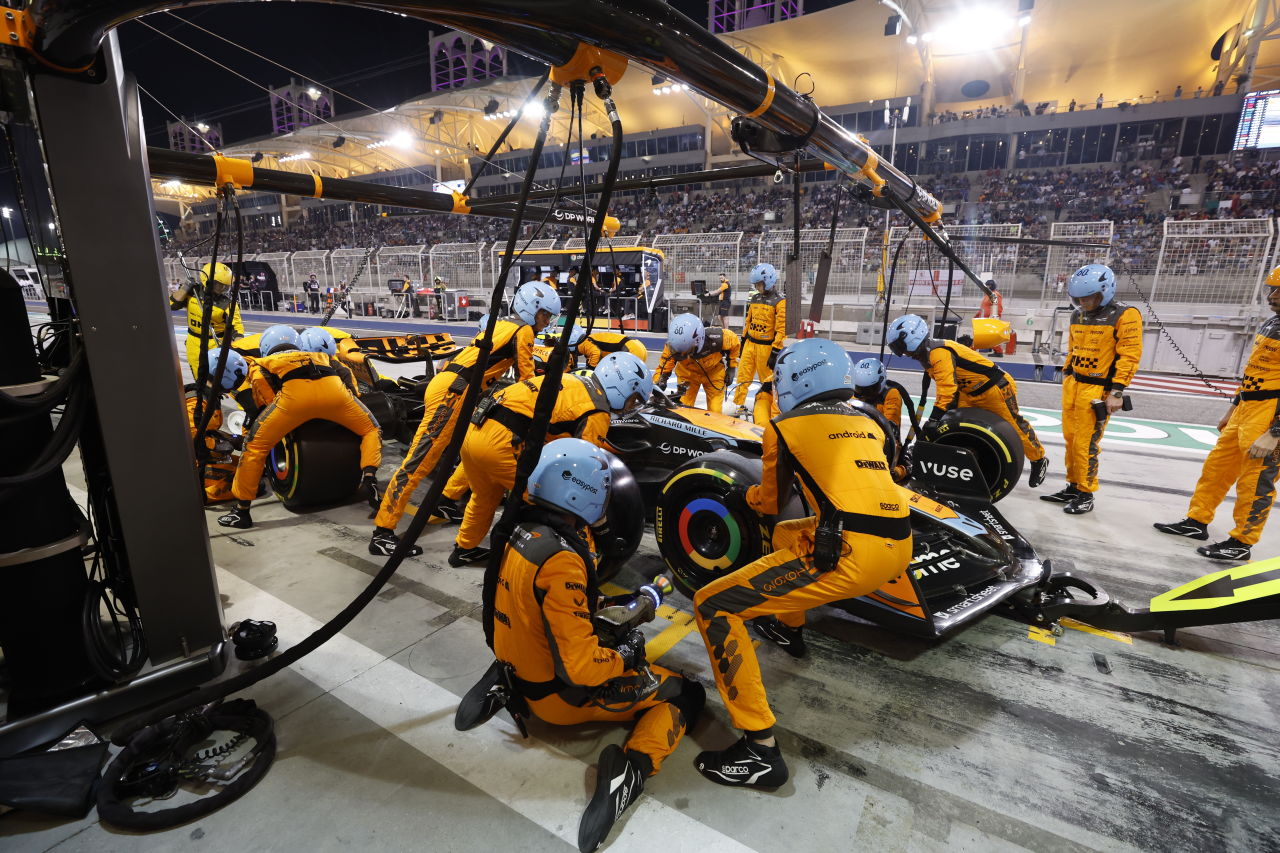Together with McLaren's Accelerator program, which takes the learnings and expertise from the fast-paced world of motorsport and applies them to real-world applications, the Great Barrier Reef Foundation and its partners aim to fast-track and scale up the deployment of heat-tolerant corals.
Coral reefs cannot adapt fast enough to warming ocean temperatures, making coral reefs one of the most vulnerable ecosystems on the planet.
It is now evident that reducing emissions alone cannot secure the future of corals reefs. We must also build a toolkit of solutions to help restore coral reefs and enhance their resilience to climate change.

Coral spawning in the Australian Institute of Marine Science National Sea Simulator. Credit: SkyReef Photos
The Foundation, along with a group of leading science agencies and universities around Australia, have been addressing this challenge through the Reef Restoration and Adaptation Program. While important progress and breakthroughs are being made, this group recognises that to be successful on an ecosystem as large and diverse as the Great Barrier Reef, we must solve significant science and engineering bottlenecks. The opportunity to bring the expertise of McLaren Racing into this program at this critical scaling moment is a potential game-changer.
Great Barrier Reef Foundation Managing Director Anna Marsden said: "Climate change is the number one threat to the Great Barrier Reef. We need to urgently restore damaged reefs and enhance the resilience of the ecosystem. Through the Reef Restoration and Adaptation Program, we've pioneered world-leading techniques that revolutionise reef restoration. Our next challenge is to solve significant science and engineering bottlenecks that will allow us to scale up this critical work in a closing window of opportunity.
"The Great Barrier Reef Foundation is excited to partner with McLaren to leverage the team's elite engineering skills to help accelerate coral reef restoration at a scale and speed never before attempted."

McLaren F1 pit stop. Supplied by McLaren Racing.
McLaren Racing Director of Sustainability Kim Wilson said: "At McLaren Racing we have committed to achieving net zero by 2040 and to play our part in line with climate science to tackling climate change. A big part of that is making sure that we reduce emissions across all our operations and supply chain, but we know that's not enough. We also have to do something about the existing carbon in the earth's atmosphere, damaged ecosystems and biodiversity loss. We're delighted to be partnering with the Great Barrier Reef Foundation which is providing tangible and credible solutions to the impacts of climate change and are excited to see what we can achieve together."
Reef Restoration and Adaptation Program Executive Director Dr Cedric Robillot said: "The Great Barrier Reef is one of the largest ecosystems in the world - an area larger than Italy - and solutions to improve its ability to withstand climate change will not only require scientific breakthroughs but also a mindset shift towards industrial scale production, focusing on increasing capacity and reducing costs.
"This partnership combines our reef biology and marine systems engineers' expertise, with the problem-solvers behind one of the world's most recognised engineering brands to streamline the production of corals and increase the scale of deployment on the Reef while raising global awareness of the threats they face."
The Reef Restoration and Adaptation Program is funded by the partnership between the Australian Government's Reef Trust and the Great Barrier Reef Foundation. Partners include the Australian Institute of Marine Science, CSIRO, the Great Barrier Reef Foundation, The University of Queensland, Queensland University of Technology, Southern Cross University and James Cook University.






